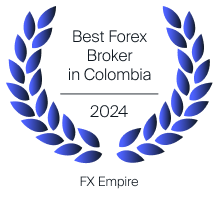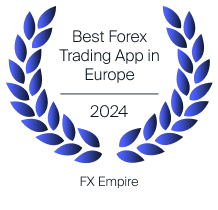Vodafone Stock
 Loading...
Loading... | Instrument:VODAFONE |
Vodafone Group PLC is a telecommunications company that is based in the United Kingdom, but it also has a string of subsidiaries and ventures in several other countries across the world. The firm started out as a subsidiary of Racal in 1983, which is a British electronics and radar technology company that was founded in 1950. Vodafone then won the bid for a license to set up the first cellular telephone network in Britain, which the company successfully commissioned in 1985. Vodafone was buying other, smaller telecommunication companies by the early 1990s and building its network partnerships with others from all over the world. In 2000, Vodafone roughly doubled in size, following the acquisition of German industrial giant Mannesmann AG.
At the end of that same year, Vodafone introduced the concept of “Partner Networks” and they signed up TDC Mobil of Denmark. This concept allowed the company to offer its services internationally in a variety of local markets, without the need for investment by Vodafone. At the end of 2011, Vodafone acquired Bluefish Communications Ltd with the goal to focus on implementing strategies and solutions in cloud computing and to strengthen Vodafone’s professional services offering. In April 2012, Vodafone acquired Cable & Wireless Worldwide and in September 2013, sold its 45% stake in Verizon Wireless to Verizon Communications for $130 billion. This marked one of the biggest deals in corporate history.
Vodafone then used the funds from this deal to launch their £19 billion Project Spring initiative in order to improve network quality in Europe and emerging markets like India. In 2018, Vodafone acquired Liberty Global’s German and central and Eastern European operations, and in the same year, they merged with Hutchinson Australia and TPG Telecom. In August 2018, Vodafone also merged with Idea in India. As of the end of 2018, Vodafone Group Plc is involved in the provision of telecommunications services in several countries in Europe, the Middle East, Africa and the Asia Pacific region. The company offers a range of consumer products and mobile services, which include call, text, broadband data, television, VoIP, mobile money services and Giga TV, which is an advanced streaming service. Vodafone also offers converged telecommunications solutions that include Vodafone Meet Anywhere, Vodafone One, GigaKombi and Vodafone One Net Enterprise.
The company also provides Internet of Things (IoT) connections which allow for secure communications; cloud security services for both public and private cloud applications, in addition to cloud-based security products for networks and devices. Furthermore, Vodafone rents capacity to mobile virtual network providers. The company directly serves about 536 million mobile subscribers and over 20 million fixed broadband customers worldwide.
Vodafone Stock History
Vodafone’s primary listing is on the London Stock Exchange, where it is one of the constituent securities of the UK100. The company trades under the ticker VOD. When the company was initially floated on the exchange on October 11, 1988, each of its ordinary shares was sold at 170p each. As the company grew, it could no longer operate as a Racal subsidiary. The company finally de-merged in 1991, and the base cost of the Racal shares for UK taxpayers was divided between Vodafone and Racal Plc for purposes of determining capital gains in the ratio of 80.036 to 19.964 respectively.
On the day that the company was de-merged, the opening share price for Vodafone was 332p, while each Racal share sold at 223p. As of 2018, Vodafone has had 4 share splits. The first split for VOD took place on July 25, 1994, this was a 3 for 1 split. The following splits occurred as follows: a 5 for 1 split on October 04, 1999; a 7 for 8 reverse split on July 31 2006, and then a 4905 for 5000 reverse split on February 24, 2014. The company has a market cap that stands at approximately £41 billion as of December 30, 2018, making it one of the largest companies listed on the London Stock Exchange. The telecommunications giant also has a secondary listing on the NASDAQ.
How to Trade Vodafone Stocks
Vodafone started life on a high by scoring the deal to set up the first mobile telephony network in Britain. From there, thanks to the success of the ventures, acquisitions, mergers and expansion into more countries and territories, the company, as of January 2019, became one of the biggest and most recognisable brands in the world. However, the company’s revenues and share price have been on a steady decline since 2014 due to a number of factors that could affect the future of the company. Still, the company took a variety of steps to remedy the situation, and the success – or failure – of these steps is certain to result in a rollercoaster ride for investors that has profit-taking potential for both medium- and short-term CFD investors:
Here are the factors that investors should evaluate when trading Vodafone:
- An Unstable Financial Base
Commentary from many analysts seems to indicate that one of the things driving Vodafone’s shares lower is its share policy. The total dividend in the last financial year is covered by its free cash flow, but if you factor in the company’s rising spectrum costs and increasing debt, it is clear that the firm’s finances are shaky. Vodafone Plc’s total debt, as of December 2018, stands at about €40bn, and this is without factoring in the company’s lease obligations and other funding requirements, such as pending spectrum payments for upcoming networks. What this has meant is that the company has had to prop up payments to its shareholders through debt – an unsustainable situation. However, the company is developing new opportunities and finding ways for it to monetise its non-core assets in a push to cut the existing debt. - Competitors
Intensified competition is yet another big reason why Vodafone has seen its share price fall in 2018. Aggressive promotions carried out by Iliad, a telco in Italy, has had a serious effect on support and market sentiment. With Vodafone deciding not to pay premium prices for Spanish football, it is also finding itself in the midst of stiff competition there as well. In India, Vodafone has also had to face a challenge from Jio, which has carried out some huge promotions in 2018. - New Markets Performance
Although many investors seem to have concentrated on the potential negatives moving forward, it is important to also keep sight of the fact that Vodafone has had significant successes in some parts of Europe, emerging markets in Africa, the Middle East and the Asia Pacific regions. This is thanks to a strategy that provides unified communication solutions for voice, cloud for business, data for both corporate and individual customers, and mobile banking through M-Pesa. M-Pesa is a mobile phone-based money transfer, financing and microfinancing service, which was launched Vodafone in 2007 for Safaricom and Vodacom, the largest mobile network operators in Kenya and Tanzania.
Vodafone Stock Trading Information:
- MT4 Symbol: _VODAFONE
- Trading Hours: Monday to Friday – 08:00-16:29 GMT
- Currency: GBP / Penny
- Leverage: up to
- Minimum Trade Size: 1000
Why Trade Vodafone Stocks with AvaTrade
- Regulation:
AvaTrade has a regulatory licence across five continents and is in the process of expanding even further. This means that AvaTrade operates within the strict guidelines of the regulatory bodies. - Advanced Trading Platforms:
AvaTrade caters to all types of clients by providing a variety of top-notch platforms and innovative solutions to choose from. These include the highly popular MT4 trading platform, AvaTrade App, DupliTrade and AvaSocial social trading systems and the exclusive Vanilla Options app – AvaOptions, as well as Trading Central and Guardian Angel add-ons. - Choice of Trading Instruments:
AvaTrade provides a wealth of trading instruments, such as, Cryptocurrencies, Forex pairs, Commodities, Indices, Stocks, Bonds, and ETFs. Traders can also engage in automated trading with API Trading, DupliTrade and ZuluTrade. AvaTrade is also one of the few companies that offers Vanilla Options. - Safety and Security:
Clients’ funds are held in a segregated account. In addition, AvaTrade protects its clients and ensures that a trader’s account will never go below zero, with the help of negative balance protection. - Professional Services and Support:
Clients can access an outstanding multi-lingual customer service and support, along with a dedicated account manager who caters to their every need. - Flexible and Secure Payment Solutions:
Traders can choose from a wide variety of deposit methods: Credit card, Wire transfer, Webmoney, DinPay, Boleto and FasaPay. - Comprehensive Education:
AvaTrade’s clients can access a comprehensive collection of educational materials including videos, articles, weekly webinars and AvaTrade’s eBooks. - Lucrative Partnership Programmes:
AvaTrade believes that partnerships are a key factor in its success. As a result, we offer many partnership options including Introducing Broker, Affiliate Manager, Trading Academy, Tide Agent, Business Partner and Flexible While Label.
Looking to trade Vodafone stock and a choice of other CFDs in a secure environment?
Sign up to AvaTrade today!
Vodafone Stock FAQ
- Why should I trade Vodafone shares?
Vodafone has a long history, having been the very first cellular provider in the U.K. Today its business stretches across much of the world, although it is notably absent in the North and South American cellular markets. The stock remains one of the largest on the London Stock Exchange, and it regularly sees daily trading volumes in the millions, which emphasizes the popularity of these shares among traders looking for exposure to either the telecommunications sector or the U.K. share market. Shares have also seen a clear trend for several years, which could make it an easier trade than other stocks.
- Is Vodafone the best telecommunications stock for trading?
There are a number of telecommunications stocks and it tends to be a very competitive and sometimes volatile industry. In some cases, you might find that Vodafone is the best telecommunications stock to trade, but at other times its price action is not as appealing as that of some competitors. Such is the nature of the financial markets. They are always changing, and always presenting new and different opportunities. Because of this, keeping an eye on Vodafone is a good idea for the active trader in order to catch such times when the stock outperforms and becomes the best telecommunications stock for trading.
- What’s the best strategy for trading Vodafone shares?
Because Vodafone has been in a downtrend for nearly a decade the best strategies will revolve around using that downtrend to profit. Thankfully with CFDs traders are able to take positions either long or short with equal ease, so potentially profiting from the downtrend in shares is going to be a far simpler process when using CFDs to trade Vodafone shares. Traders can look for rallies in the stock to bring it to overbought levels and then sell, or go short. Alternatively, another viable strategy is to play the contrarian and look for reversals that allow you to go long.


















